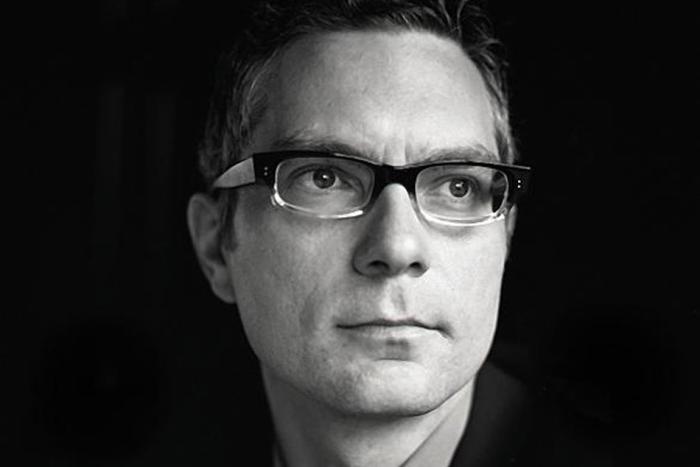With the troubled state of provincial finances and an aging population, Canadians have ample reason to feel anxious about the quality and accessibility of health care, not to mention the system’s long-term sustainability. Then last September a report in the Toronto Star underlined another glaring weakness in the system—that of drug safety. According to the Star’s investigation patients and doctors were reporting that several popular medications—including the smoking-cessation drug Champix, a generic version of the ADHD medication Concerta, and the antidepressant Cipralex—were causing severe side effects, including hemorrhaging and suicide.
The reports, however, have so far produced little follow up from Health Canada: the regulator is in fact not obligated to analyze the new data or make it available to the public. In response to the criticism ignited by the Star stories, the government ran ads in medical journals urging doctors to increase their reporting of observed side effects. But this hardly shores up the flaws in our drug safety regimen. Doctors are still not compelled to report side-effects to Health Canada, merely “encouraged”; the regulator still isn’t obligated to investigate reports; and no one still knows what to think about Champix. 11As part of its series the Star also discovered that children were being prescribed antidepressant and antipsychotic medications intended for adults with sometimes fatal results. Health Canada told the Star that the onus was on doctors to prescribe responsibly and that it didn’t have jurisdiction to intervene.
The Health Canada brouhaha signals a growing public mistrust in doctors, regulators, and the medical industry itself. In his most recent book, Bad Pharma: How Drug Companies Mislead Doctors and Harm Patients, British physician and writer Ben Goldacre explains why the skepticism is warranted. It’s a lucid account of the systemic malfeasance that leads to some of the biggest problems in modern medicine. “Trials with positive results are twice as likely to be published as trials with negative results,” Goldacre says. And the results of withheld drug study results can be fatal; for example, over 80,000 US users of the diabetes drug Rosiglitazone have died of heart failure, a fact that Goldacre links to repressed data that emerged in early trials. Meanwhile, aggressive television and print marketing, including manufacturer-sponsored training (par for the course for physicians around the globe), misleads health professionals about the merits and risks of treatment. Equally troubling is the provenance of drugs that haven’t been linked to fatalities: thanks to legislative loopholes, a drug simply has to be shown to be better than nothing in order to make it to market. Goldacre’s accounts of these and other realities make Bad Pharma a galvanizing, compulsively readable exploration of how the medical industry is failing us—and why we need good medicine now more than ever.
I met with Dr. Goldacre at the bar of the hotel where he was staying during a recent promotional stop in Toronto. We drank Diet Cokes and talked about drug companies, the hackery that passes for popular writing on health and medicine, and what motivates his campaign to clean up Big Pharma.
In your previous book Bad Science you debunked the counter-narrative of alternative medicine, but with Bad Pharma you point up the flaws in mainstream medicine. What is the difference between your critique of Big Pharma and the type of anti-medicine arguments offered by, say, nutritionist and television host Gillian McKeith? 22McKeith is a sort of greenwashed UK version of Dr. Oz, and Goldacre’s best-known public foil.
I don’t think there’s any difference between quacks and big drug companies. They both use the same tricks to distort evidence, in order to mislead doctors and patients about the benefits of their treatments. It’s just that quacks tend to use slightly cruder versions of those tricks. So if you like Bad Science as kind of the beginner’s guide to clinical trial methodology, and how it can be distorted, then this is the advanced version.
But it’s also a matter of scale. In the world of quackery, it’s actually quite common that people defend treatments that have been shown to have no benefits at all. In mainstream medicine, what I’m talking about here is that we can’t be sure what the relative merits of different treatments are. So we can’t be sure that patients are getting the best, the most effective, the most cost-effective treatment. And that’s a very different level to operate on.
I don’t believe in the dichotomy of alternative therapy vs. mainstream medicine. I think there are treatments that may or may not work, and to support their use, they have evidence that can be of good quality or bad quality. You certainly get a preponderance of bad evidence in the world of quackery. But it’s self-evident that there will be flaws in evidence in mainstream medicine as well. I’m surprised that some people think it’s completely unacceptable to discuss that. There are people in the pharmaceutical industry and medicine that think these discussions should be held behind closed doors. The reality is that we haven’t fixed these problems behind closed doors within the professions, within industry, within regulators.

The most explosive part of Bad Pharma is your discussion of missing data in industry-funded trials. To very briefly sum up, trials conducted by pharmaceutical companies on their own drugs, which are completely legal, and often provide the bulk of available research on the drug, are conducted in such a way that data about a drug’s harmful effects can be repressed or “go missing.”
This is one of the most well documented ethical and practical problems facing evidence-based medicine today. The best currently available evidence, which is from a systematic review of all the studies ever done on this question, which amounts to dozens, shows that about half of all clinical trials that are for the treatments we use today have never been published. It also shows that trials with positive results are about twice as likely to be published as those with negative results. This means the evidence that we use is incomplete, but it’s also systematically distorting and exaggerating.
For that situation to have arisen in the first place should be extraordinary enough. But we’ve known about it since at least the 1980s and we’ve failed to fix it. We’ve failed several times over. Every set of regulations, legislation, codes of conduct and so on that have been tried have failed. And worse than just failing, they’ve delivered false reassurance that the problem has gone away, so we’ve stopped trying to fix it. And that’s the position we’re in today.
Before the book even came out, people from the pharmaceutical industry were trying to rubbish it, saying, “Hey, there’s this law in America that says all trial results have to be posted to clinicaltrials.com within one year of completion.” That’s correct, there is a law that says that, it’s called the FDA Amendment Act of 2007, it’s been in effect since October 2008. And it’s been almost universally ignored. There is no routine public audit of compliance. When an audit was finally published in the British Medical Journal in 2012, it found that the rate of compliance with this law was 22 percent. Four trials out of five ignored this compulsory reporting requirement. And that is the law that the pharmaceutical industry cites as evidence that things have been fixed. We also have to be clear that this isn’t just about industry withholding results of clinical trials. Independent academics are just as bad, and in some cases, worse.
Pharmaceutical companies have a commercial interest in repressing negative data. That’s why they do thing like make researchers sign gagging clauses, which is a growing cause of concern among academics, or change the conditions of the trial. Perhaps this shouldn’t be surprising to anyone who questions corporate ethics. Pharma is acting in accordance with a profit motive, and not the ethical code that we’d expect to dominate the academic and practical side of medicine. Are the interests of Big Pharma at odds with the medical code of ethics?
I’m not sure it’s inevitable that profit is inconsistent with patients’ interests. Firstly, drug companies make good effective drugs. It’s amazing that they can squander what should be a fantastic reputation for producing lifesaving products and are almost universally regarded with suspicion. I don’t think that needed to happen, and in some respects the industry are victims of their own lobbying success. In successfully lobbying for the right to withhold information about clinical trials, for example, mistakenly thinking that supports their short-term gains—that’s come at the cost of the reputation of the entire sector.
It’s a real tragedy that they undermine public trust by acting in this way, because actually, they end up undermining public trust in doctors as well as in the drugs that we use.
So how do we increase that transparency and restore trust between doctors and patients? Are there government controls we could implement, legislation, or ways to improve the ineffective controls that are already in place?
There are several approaches here. On the one hand there are the heavy-handed regulations. What’s extraordinary is that these regulations exist, but as I said they’re ignored. No fine has ever been implemented by the FDA against anybody withholding the results of clinical trials despite this abysmal compliance rate. So firstly, we could just enforce the laws we already have. But there are many other areas where we could exercise some influence. I think that universities where academics are collaborating with industry-run trials should ensure that they maintain control over the data and they’re allowed to publish the data. In fact, I think universities, medical, academic, and professional bodies should have it in their codes of conduct that they expect all doctors and academics will post their results in public within, say, one year of a trial’s completion. That doesn’t require heavy-handed legislation. That just requires recognition by the professions that this stuff matters, and recognition of that in our culture and our codes of conduct.
But also there’s a real lack of ambition on the part of regulators and insurers and the people who make judgments about cost-benefit, regarding what information we should ask for from drug companies before we use treatments. And what we should do with that information when they hand it over. For example, we have this idea of clinical trial registers, which are lists of all the trials conducted in one particular part of the world. The idea of these registers is that with this list, if people post their trials before they run them, then at least we can spot when trials go missing in action. And in some cases those registers are amended to include results, like clinicaltrials.gov. But even these registers are only conceived of as being a list of all the trials conducted within the US, or within one site in the US, or in Europe. That makes lots of non-overlapping, or partially overlapping lists, that can’t quite be married up and aren’t complete overall.
There is one shocking chapter on how drugs are tested, using paid “guinea pigs.” You note that these volunteers are inevitably poorer consumers, who in countries without affordable health care systems (like the US) ironically wouldn’t be able to afford these drugs once they hit the market. One of the book’s scarier implications is how poor consumers are affected disproportionately. We know that poverty negatively correlates with health. But the poor consumer also has less access to research on drugs, may be less likely to advocate for herself, and has less access to alternative treatments that might not be covered, such as psychotherapy. Can you speak a bit about how Bad Pharma is, or is not, an equity issue?
As you say, trial participants are often either from poorer countries or they are the poorer people within developed countries. And in some cases—I hope it’s uncommon—they are exposed to risks by participating in trials. There is the interesting ethical question of whether it’s acceptable for drugs to be tested in populations that wouldn’t be able to benefit from the results of those tests.
But what’s really interesting is how the flaws described in this book affect everybody no matter how rich or how poor they are. Because I think there are probably some very wealthy people out there who imagine that by going to see the best, most expensive doctor in New York, they can somehow be protected from these flaws in the information architecture of evidence-based medicine. And the reality is they can’t be. When half of all clinical trial results are withheld from doctors and patients, that means all doctors... I mean nobody has access to that stuff. It doesn’t matter if you’re seeing the most fantastic specialist in the whole of Mount Sinai: the reality is, that person doesn’t have any better access than your everyday doctor in the sticks.
You live in the U.K. but you’ve also researched these issues in the U.S. and Europe. Do you notice a difference in how your work is received in countries with different health care systems and attitudes towards health?
It’s absolutely fascinating. I’m a real connoisseur of how arguments play, and I’ve had a lot of squabbles over the use of science in lots of different arenas, whether it’s alternative therapies, or government statistics, or vaccines, or big pharma. And especially when you look at the US, you realize that the rhetorical environment is completely different. There are plays and manoeuvres that people will deploy in a public disagreement in America that would just get you laughed out of town in the UK.
For example, PhRMA, the US pharmaceutical representative body, have made the argument that it should be okay for drug companies to withhold information about the effects of drugs from doctors and patients because essentially it’s just good for companies to get on and make money. I think that will resonate with some corners of the US because there’s a stronger sense of just keeping the big money making machine running, and that the success of big corporations has broader social benefits that outweigh an individual patient’s need for informed decision-making. To a UK or European audience, no one would entertain the prospect that a company’s wellbeing is more important than a patient’s. But I think in the US, if you close your eyes and squint a bit, there are quite a few people who could persuade themselves that that’s an acceptable argument.
On the subject of the media... I’ve written on health topics, which means I’ve relied on publicly available studies. For example, Health Canada has a drug database that contains thousands of sponsor-developed monographs showing the efficacy of selective serotonin reuptake inhibitors (SSRIs) used to treat depression and anxiety disorders. I quote these studies in good faith, and after I’ve quoted them, a fact-checker verifies the information, probably using the same sources. Then the information reaches the public, who makes decisions based on that easily digestible article. The idea that journalists all around the world are relying on inaccurate studies is tantamount to an entire profession being swindled. Knowing as we do now that these studies are unreliable, how are health or science writers supposed to do our jobs?
Health and science writers need to be critical consumers of scientific research, and actually, the existence of shortcomings in research should be the meat and drink of the profession. There’s a really interesting structural flaw in science journalism, in that it has traditionally been very triumphalist. It’s always, “Oh, look at the wonders of science, isn’t it fantastic, look at this amazing breakthrough!”
That’s great for some things. But actually, most of science is about, “Oh, look at this really interesting experiment, which has some strengths and some flaws, and let's look at which ways it supports the author’s stated conclusions. But let’s also look at the shortcomings, and discuss those and what improvements can be made.” That is the bread and butter of science, that’s what happens in the discussion at scientific conferences and also in the discussion section of scientific papers. I’d like to see more science journalism reflecting that kind of meaningful discussion about methodological strengths and weaknesses in each individual piece of research.
About your own writing, I was excited by how you were able to make this topic of systemic malfeasance not only coherent, but engaging. You’ve critiqued conventional science writing in the past as dumbing-down the specifics, and presenting research in a way that makes it easy for the reader to discredit it. The assumption, perhaps, is that accurate science writing would not be interesting. How do you balance the duty to inform your reader—by being accurate and not dumbing-down details—with your job as a writer in keeping them engaged?
The thing that I’ve done which is different than some traditional approaches to science writing is, firstly, put the methods of the experiment right in the foreground. I talk about the strengths and weaknesses, by talking about the problems with the methods that are used in scientific research. That’s allowed me to talk in more detail about how science is done. The other thing I’m really aware of is avoiding the traditional gimmicks for making things exciting in science writing, like making it a story about a person and their “journey.” I really hate reading that stuff, maybe because it feels like people are embarrassed about the science, and I think, “You’re embarrassed about the science, and you think historical biography is more interesting than science?” How low-status does that make nerds?
Like they have to pass off science as something else, smuggle it in.
Exactly. So I’ve gone the exact opposite way of distracting from the science, and the exact opposite of passing it off. But the gimmick that I’ve used to try to keep things rolling along is conflict. And that really reflects the reality of scientific discourse. People do disagree with each other about the strengths and weaknesses of different treatments. And turning the substance of those disagreements into the story rather than what they said to their husband that day and how much they love their kids, is to me a more interesting way of narrativizing the story of science.






